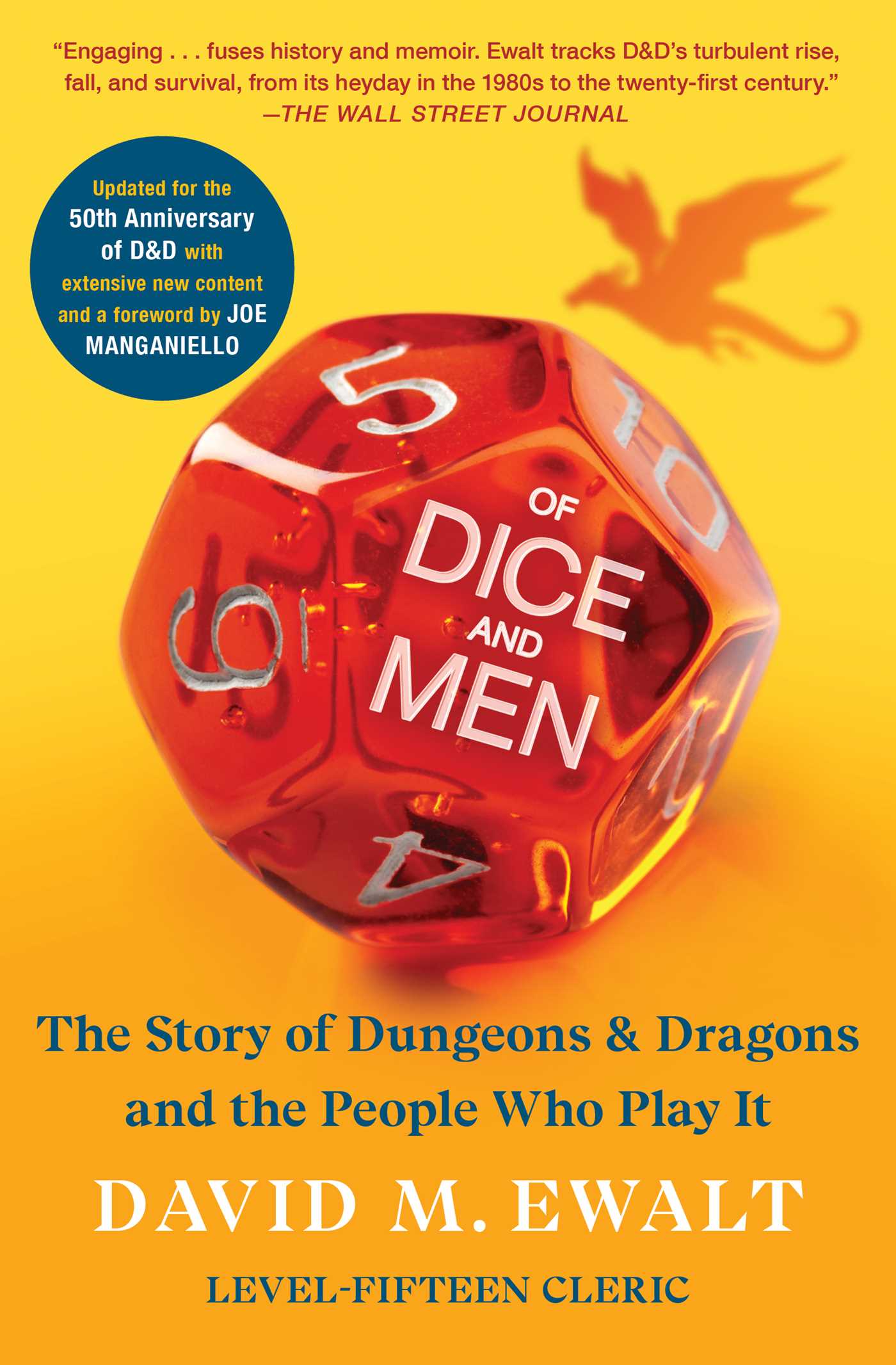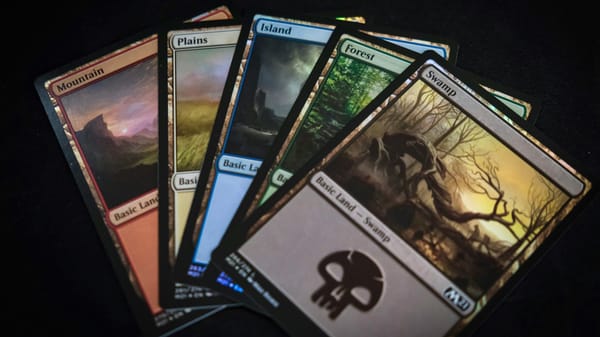David Ewalt can’t get game night out of his head
For some of us, games, like fucking up, are a chronic human condition.

Reading David Ewalt’s book, Of Dice and Men, feels a little bit like walking into a time capsule. Part memoir, part history of Dungeons & Dragons, and written as a layman’s guide to roleplaying games, it was published just after the 2013 GenCon where Wizards of the Coast debuted a playtest version of fifth edition. One of the anecdotes included near the end of the book is of Mike Mearls flipping through player feedback the day after everyday players got a good look at the new edition. The contemporary scene is unimaginable to the 2013 edition of this book. But that doesn’t make it less enjoyable.
Of Dice and Men is getting a re-release on the 10th*ish anniversary of publication to coincide with the 50th Anniversary of the publication of Dungeons & Dragons. It includes a forward by Joe Manganiello (a patently hilarious and mostly Manganiello-focused addition that had me giggling) and an afterward that imparts musings on the past decade, some larger assertions of the state of play, and Ewalt’s experiences during GenCon 2023.

Of Dice and Men lends part of its focus to the history of gaming and TSR specifically. Going through the history of wargames in Prussia (Kriegsspiel), H.G. Wells’ Little Wars, and even sharing his experience playing “Napoleon Battles Boot Camp” at Historicon, Ewalt presents an argument for the intrinsic propensity that humans have towards play, and how it’s developed through tabletop games.
While he relates the many exploits of Gary Gygax, Dave Arneson, and the various personalities that made up TSR over the years, Ewalt never eulogizes them. These are real people who were, at times, pricks. His description of Gygax as a Barbarian on page 113 fits, and it’s this kind of tongue-in-cheek playfulness with the often venerated co-creator of D&D that made me enjoy reading about him. Not to mention that every single time Ewalt quoteed Gygax in Of Dice and Men I found myself making disparaging comments in the margins of the book. These marginalia are largely unprintable, but please know they involve a lot of exclamation points and cusses.
If you make it past the first chapter where Ewalt declares the bard an “obscure character class,” which in 2013 made sense, you’ll find yourself drawn into Ewalt’s own 3.5e adventuring party as they journey through the homebrew Vampire World across years of play sessions. He includes asides of every game he mentions playing, written like fiction, and in addition to being charming anecdotes of past adventures, I found them incredibly endearing and sentimental. It underlines the history, brings everything back to games, and gives non-believers a chance to understand what it is that makes TTRPGs so powerfully fun. I sat down with Ewalt to chat about the book, D&D, and where he thinks TTRPGs are going in the next ten years.





